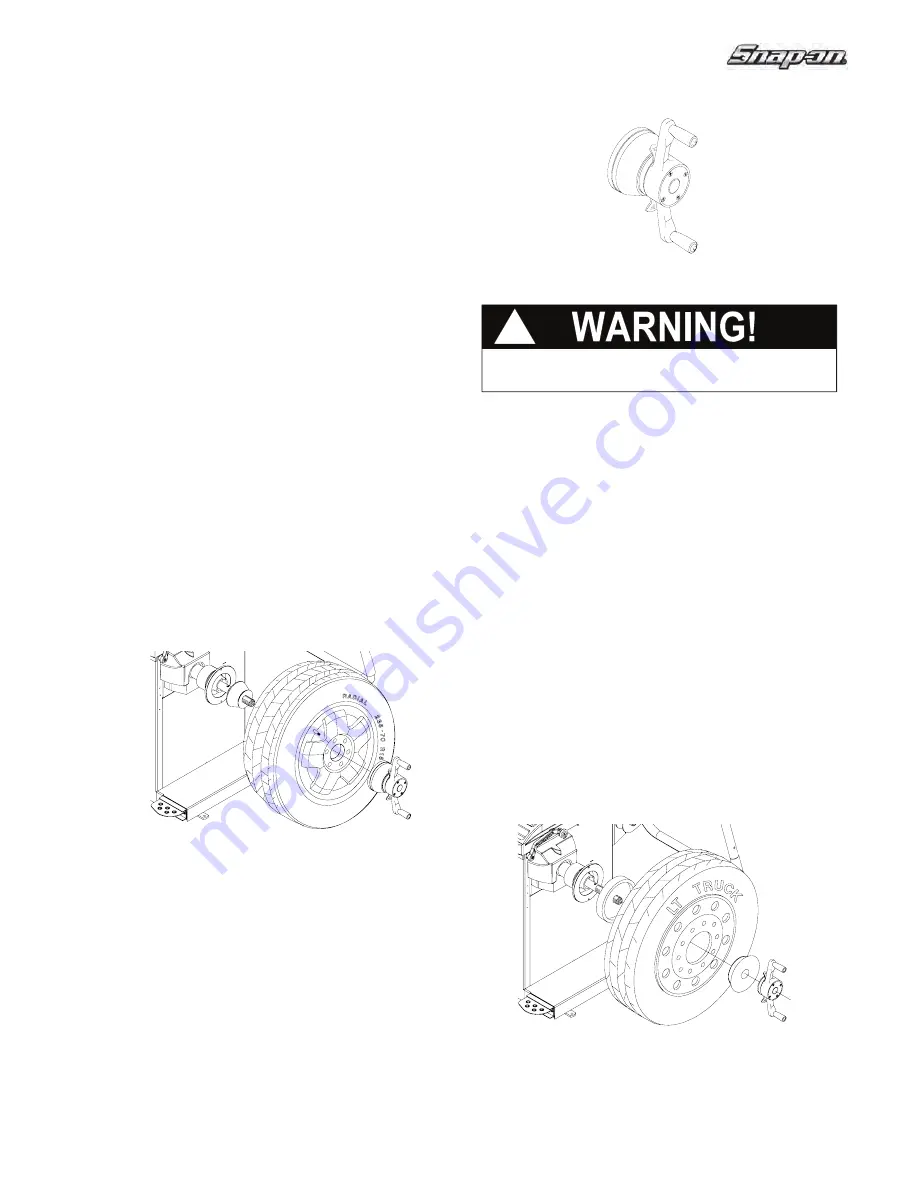
13
EEWB331B
4.2 WHEEL MOUNTING
Nearly all standard wheels and many alloy wheels have
accurately machined center holes, and they should be
mounted with center cones. Accurate balancing depends
on accurate mounting of the wheel and correct seating of
the cone in the pilot hole. Insure that the wheel is centered
on the shaft exactly as it will be mounted to the vehicle.
Before starting any balancing procedure it is very
important that the wheel is mounted on the machine
with the proper adap tors. An incorrect centering of the
wheel will result in considerable imbalance.
There are many types of wheels and Snap-on supplies
adaptors of good quality and durability for the large
majority. However if you meet special wheels which may
require a specifi c adaptor, call your Snap-on distributor.
Rims may be divided into these major groups:
1. Car rims with a true center hole.
2. Car rims without a center hole.
3. Car rims with an untrue center hole.
4. Light truck rims.
5. Lug centric wheels
6. Clad wheels
4.2.1 STANDARD WHEELS (BACK CONE
MOUNT)
Mount the wheel as detailed below in
Figure 15
Figure 15
1. Mount proper cone against spring plate.
2. Mount wheel on shaft in the same manner as you
would on the car.
3. Mount pressure cup on shaft and place against
outside of wheel, follow with the Quick-nut.
4. Tighten Quick-nut securely with both hands. To
operate the Quick-nut pull the lock-unlock lever
(Figure 16). Slide the Quick-nut on the threaded
shaft. When in contact with the rim, release the
unlock lever and tighten fi rmly. To assist in cen-
tering the wheel properly, rotate the wheel on the
shaft while tightening the quick nut.
FAILURE TO TIGHTEN WING NUT SECURELY
MAY RESULT IN SERIOUS PERSONAL INJURY.
DO NOT USE A HAMMER TO TIGHTEN THE
QUICK NUT.
TO RELEASE THE QUICK NUT, UNSCREW
A FEW TURNS TO REDUCE THE AXIAL
PRESSURE, THEN PRESS THE UNLOCK
LEVER AND SLIDE AWAY FROM THE SHAFT.
5. Check that the wheel rotates true by turning the wheel
several revolutions while noting any excessive runout.
4.2.2 CENTERING LIGHT-TRUCK WHEELS
An optional offset spacer may be required for some
light truck wheels and reverse-offset wheels that must
be moved away from the balancer mounting fl ange.
The extension adaptor is often used with the 5-1/4 inch
diameter light truck cone. (p/n EEWB-5)
Install the spacer on the mounting fl ange, then mount
the wheel, using the front cone method (Figure 17)
Figure 17
!
Figure 16







































